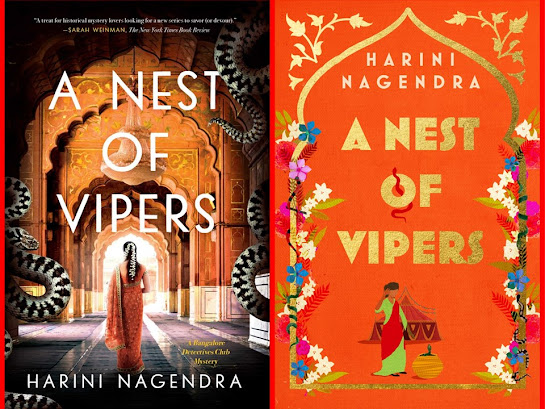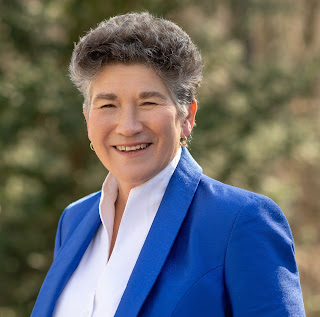Thank you, Josh, for the opportunity to write this. The only thing more surprising to me than Josh liking a contemporary YA fantasy is that I wrote one. And here's the story of how that happened.
My latest book almost didn't happen because of the pandemic, and then only happened because of the pandemic. One of my friends and literary heroes is Lawrence Block, who has written books while on cruise ships, so I decided that my next book would be written while I embarked upon a grand circuit of the United States by rail. (You see where this is going, don't you?) I even asked ol' LB for advice on which Amtrak services to take. The book was at heart a road story, and the places I visited would inspire the tale. It would practically write itself!
Thankfully I hadn't booked the tickets by March, when everything shut down. A lot of things happened. I won't bore you with it, you went through it too, but one of the lesser indignities was having to witness a million writers decide to post daily word counts on social media, to let everyone know they were still typing away while the world changed around them. Because somewhere, someone said that to be a writer, you should write every day.
Now, you can write however the hell you want. I shouldn't even have to say that, but due to the enormousness and the enormity of writing "advice" on the internet, a lot of people don't feel like they are "real writers," whatever that means. (Have you written something? You're a writer.) Now, there's something to say about momentum. The first law of motion applies to writing, sometimes, somehow.
It's worked for me. I finished my first novel during National Novel Writing Month. It was even a coherent narrative with a three act structure! Five novels later—three of which were published—daily word counts became less of a challenge, and more of a dread. It kept me from writing. And working for a children's hospital during the pandemic—even remotely—made for long, stressful days that left me little time or desire to write, especially in "sprints" or with a pedometer strapped to my brain.
What had kept me writing was a newsletter, delivered via Patreon, that a few dozen people followed me on. I promised them a few short stories, so I had to pay up. One of those stories was "Good People," published in Vautrin, and chosen as a distinguished mystery story in Best American Mysteries and Suspense 2021. Another was "88 Lines About .44 Magnums," still one of my favorite titles. "Good People" was written in four parts, over successive weekends, so I couldn't go back and edit. I had to make it work.
It sounds like madness, but it worked. I didn't know how it would end when I started, but I had to find a way there. It recharged my urge to write. So I decided to write the road trip book one chapter at a time, publishing them on Sundays, with no ability to go back and edit them, because they were delivered to readers serially.
It worked for Dickens, didn't it? (No pressure.) Somehow, it made me more eager to write than ever, even if it didn't make any sense. If a thousand words a day is too daunting, how the heck is writing a chapter a day any better? Because my method was to sit down at the keyboard with my morning coffee, and sit there until the chapter was done. I didn't write a little each day. I didn't start on Saturday. I could think about what I wanted to write all week, and I did, on long morning hikes at Eagle Rock preserve, where some of the story is set, on long commutes to the hospital to work in the data center, and from my recliner while everyone else binged TV.
I had a vague idea of a story: a young kid's parents are taken by ICE, and they have to make their way across the country to safety. I had purchased a set of postcards based on old WPA art of the National Parks, and I used them as my guide. The kid wanted to visit all the National Parks, and would use the postcards, bought by their dad, as a sort of road map.
Some of them didn't make sense; Vyx starts the story in Jersey City, and wants to get to California, near Sequoia National Park. so Acadia in Maine wasn't in the cards (pun intended!).
But 30 chapters later, and Devil's Tower, Bryce Canyon, Glacier, Shenandoah, and somehow, Mount Denali, all managed to make it into the story, and let me tell you, traveling that way by imagination was a lot cheaper than by train. (I have looked at the Talkeetna rail trip from Seward Alaska, since I visited Denali while crammed in a wobbly old pickup truck with my cousin and his family, and the clouds hid the mountain peaks the whole time we were there.)
As always with writing, whatever works, works. Cliffhanger endings inspired imaginative escapes. Surprises could be explained chapters later. "When in doubt, have someone come through the door with a gun in his hand," much like "Chekhov's gun," doesn't need to be taken literally. Something exciting has to happen. In Vyx's case, it was never a man with a gun: it was a talking fox and magpie, a dragon on a hoard of blinged-out cell phones, and a government agent who could freeze people solid with his breath.
And while Chandler could never explain who killed the chauffeur in The Big Sleep, who you write about magic, it has to have some rules and make sense. I kept it somewhat simple, but sometimes it felt like I was building boxcars on a moving train. But I finished the book, and even pulled the old "everything changes" at precisely chapter 15, even though I didn't know what the change was going to be. Vyx just got thrown through a faerie-house door, and even I didn't know where it went when it happened.
It was a lot of fun. Before it was published as Vyx Starts the Mythpocalypse, I did edit it again, and I had the chance to go back and seed it with foreshadowing, create callbacks, and strengthen the structure, but the readers loved the story the first time because they didn't know what would happen next. How could they, when I didn't? "Pantsers" say this all the time, but I'd never considered myself one. I always had "mile markers" thought out ahead, even in this case, so I considered myself a Plotter. But like Vyx, I've found that I'm never just one thing.
Would I do it again? I'm planning to, right now. Writing the sequel, one chapter at a time. Oddly enough, it's the only time I've written a book under a hundred thousand words, so I think the boundaries suit me. Can lightning strike twice? I'll let you know, once I finish Vyx Stops Weathergeddon.
You can order the paperback of Vyx Starts the Mythpocalypse from Amazon! The e-book is available on Kindle and all other e-book formats, and if you would like a signed paperback, you can buy one directly from me.












